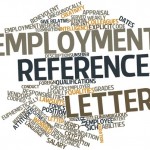
Widgetized Section
Go to Admin » Appearance » Widgets » and move Gabfire Widget: Social into that MastheadOverlay zone
Professional References Made Easy
How to develop a solid list of professional job references
 When it comes to landing that perfect job, it’s important to have a polished resume, a winning cover letter, and a professional attitude. But what about job references? With everything else you have to remember, your references can sometimes slip through the cracks.
When it comes to landing that perfect job, it’s important to have a polished resume, a winning cover letter, and a professional attitude. But what about job references? With everything else you have to remember, your references can sometimes slip through the cracks.
You may think of them at the last minute before your interview, but what if that ten-year-old reference list contains a bunch of old titles and out-of-date numbers? Here are a few things that will help you wow your prospective employer and put your name at the top of the candidates list.
Who Makes a Good Reference?
There are two types of references Professional and Personal.
Professional
When it comes to providing a professional reference list, you may think you should only use your former employers. That’s not always the case. A good professional reference can come from a former employer you’re in good standing with, a coworker or even a college professor. Brady Lowe, Communications and Community Relations with Globe University-La Crosse, puts it this way, “Great references, professional and personal, should be able to speak to a jobseeker’s work strengths and personal characteristics. Ideally, references should serve as both professional and personal references. Many times if we work with an organization for a long period of time, our coworkers become our friends.”
Personal
Everybody acts a little differently when they’re outside of the workplace. This is why many potential employers not only ask for professional references, but for personal ones as well. A personal reference helps them get a more complete picture of a potential employee. When citing personal job references, choose close friends you’ve known for several years who can give a good account of your character. However, don’t volunteer personal references. Only provide them when asked.
Asking for a Job Reference
“The time to ask for references isn’t when you’re looking for a job. If you’ve lost a job traumatically, by being fired or down-sized, you may not have the emotional strength or intellectual focus to find the people you need at that time. Asking for references is something you should be doing continually throughout your career” says Beth Johnson, of Elizabeth’s Resume CPR. No matter how stable your job is today, it could be gone tomorrow. This is just a fact of today’s economy.
Elizabeth goes on to say, “When a coworker you love to have on your team moves out of state, ask him or her for a reference. Build a portfolio. Stay in touch. Know the current location and status of your reference pool. Whether you need references because you just found your dream job or your dream just vanished, you’ll be ready.”
If you make a habit of asking for job references as you move along in your career, it will feel a lot less awkward. It will also guarantee that your reference list is always fresh, accurate, and up-to-date.
How to Prepare Your Reference List
Preparing a reference list is actually quite easy. Karla Leavelle, Managing Partner ofHumanCapitalAdvisors.com uses her 30 years experience as a human resources executive to break the process down in an easy-to-understand manner. First, gather at least four or five of your best references. You’ll need the following information:
- Names
- Current positions & company
- The position and company they were with when they knew you
- The particular character or skill traits they can address
- Contact info, both email and phone
Next, comes the formatting. The top title should be bold and centered. For example, “Jane Smith’s Professional References”. Leave two spaces then type the name of your first reference, along with his or her title and put that in bold. Moving down one space, cite the remainder of the information and leave that in regular type-face. For example:
Jack Jones – CEO of ACME Corporation
Former Title: Manager of Finance Department
Character Traits: Attention-to-Detail, Punctuality
jackjones@email.com, 202-456-7890
Sarah Brown – HR Manager
Former Title: HR Assistant
Character Traits: Team Player, Communication Skills
sarahbrown@fakeemail.com 505-123-4567
What Your References Should Expect
Most potential employers ask fairly standard questions. Before your references get a call, drop them an email and let them know what they can expect.
Jeanine Hamilton, founder and president of Hire Partnership, offers a few suggestions. “Employers will typically ask a reference to confirm your title, your job description and exactly what you did in that role and to verify the dates of your employment. They might ask the reference to rank your performance or to describe your strengths and weaknesses. Sometimes they’ll ask the reference if you’re eligible for rehire and whether they would work with you again. The employer may also describe the job you’re interviewing for and ask the reference to comment on how it compares to the work you did with them.”
However, there are certain questions that are legally off-limits for a potential employer to ask. These questions include anything about age, disability, marital status, ethnicity, religion or lifestyle. If these questions are asked by a potential employer, your references should let you know as this is likely not a company you’d want to work for anyway.
Common Reference Mistakes
Erica Moore-Burton, Esq., author of The Little Professional P.I.N.K. Book of Success says one of the most common mistakes jobseekers make with references is not verifying reference’s current place of employment. She notes, “If a prospective employer has to chase you to get your references it’s never a good sign.” Your potential new boss has a ton of references to check. If yours slow him down, he’s not going to remember you in a good light, even if your interview was a success.
Other common mistakes made on job references include not using a supervisor, not being detailed enough and not checking with the reference to be sure they are going to give you a good review. If a reference sounds irritated or eager to get off the phone, the hiring manager may think the person either didn’t like your work or wasn’t told to expect a call. Either way, it will look unprofessional and may hurt your chances of being hired.
While a solid resume and a tailored cover letter provide information about your skills, your references give the hiring manager a glimpse into your work ethic, character, and potential fit within the company. Choose supervisors, coworkers, and personal contacts you are sure will be glad to highlight your best skills and personality traits so you’ll have a leg-up over the competition.





You must be logged in to post a comment Login